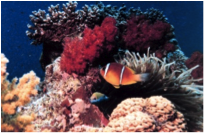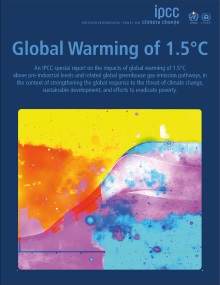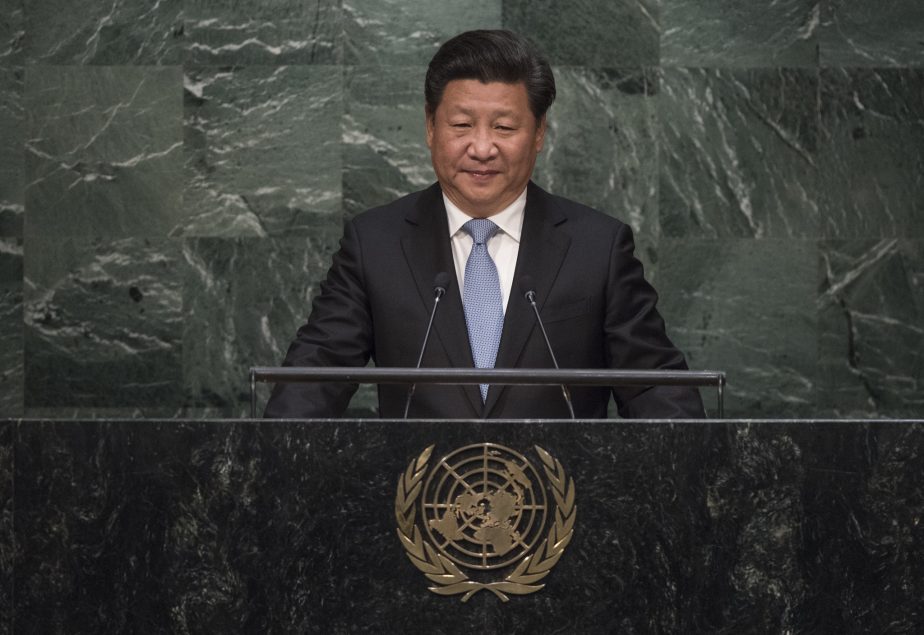Region: International
We Cannot Keep Global Warming within 1.5°C without Geoengineering
A new report from German green left groups heroically try do so, but fail
I emphasize the importance of carbon dioxide removal (CDR) technologies and solar geoengineering research because keeping global warming within the internationally agreed-upon 2°C goal through reducing greenhouse gas emissions alone is extremely difficult, and limiting it to the 1.5°C aspirational target is now essentially impossible. All options to reduce climate change that are consistent with …
Continue reading “We Cannot Keep Global Warming within 1.5°C without Geoengineering”
CONTINUE READINGThe Global Convergence of Disaster Law and Climate Law
Two very distinct areas of international law are finding more and more in common.
International climate negotiations may seem to have little to do with the work of such international relief organizations as the Red Cross. On the national level, EPA and FEMA are two very different agencies that historically have had little connection. The same has been true at the international level. But disaster and climate authorities are …
Continue reading “The Global Convergence of Disaster Law and Climate Law”
CONTINUE READINGIs the Paris Agreement’s Ambitious 1.5°C within Striking Distance?
A new analysis highlights the dangerous seduction of long-term targets
A new briefing (and PDF) from Climate Action Tracker opens with, “The recent wave of net zero targets has put the Paris Agreement’s 1.5°C within striking distance.” Big, if true. But is it? In the 2015 Paris Agreement on climate change, countries agreed to keep global warming within 2°C and to “pursu[e] efforts” to keep …
Continue reading “Is the Paris Agreement’s Ambitious 1.5°C within Striking Distance?”
CONTINUE READINGEngineering Biological Diversity
In a new paper, I introduce the international governance of synthetic biology, gene drives, and de-extinction for conservation.
In addition to climate change — the primary topic of my academic writing — biodiversity loss is the other major global environmental challenge. Like climate change, efforts over the last three decades keep failing to meet agreed-upon objectives. And like climate change, scientists and others are considering novel technologies that would intervene in natural systems …
Continue reading “Engineering Biological Diversity”
CONTINUE READINGThe IPCC Misses the Mark on Solar Geoengineering
The Intergovernmental Panel Climate Change poorly portrays the “institutional and social constraints to deployment related to governance”
Not long ago, I re-read the top-level messages from the Intergovernmental Panel Climate Change (IPCC) on solar geoengineering’s governance issues. The Summary for Policymakers of most recent broad report, Global Warming of 1.5°C (SR1.5), says, in full: Solar radiation modification (SRM) [i.e. solar geoengineering] measures are not included in any of the available assessed pathways. …
Continue reading “The IPCC Misses the Mark on Solar Geoengineering”
CONTINUE READINGWhat’s At Stake
Here’s a quick crib sheet on the climate change and the election
Here’s a quick reminder about the environmental stakes in the election. I’ve tried to stick with the facts here — you’re free to decide which way the cut. ISSUE TRUMP BIDEN Problem of climate change ” I don’t know that it’s man-made… I don’t wanna give trillions and trillions of dollars.” Biden “has long appreciated …
Continue reading “What’s At Stake”
CONTINUE READINGHow Climate Disruption May Undermine Climate Policy
The long-term harms from climate change over the next decades may undermine support for efforts to reduce emissions
Almost two straight months of wildfires and smoke in California are a tangible sign of the impacts of climate change on our lives and our world. This article from the New York Times a couple of weeks ago does a good job of laying out why the wildfires in California are only one example of …
Continue reading “How Climate Disruption May Undermine Climate Policy”
CONTINUE READINGChina’s New 2060 Carbon Neutrality Target
New climate pledges from China and the EU make the U.S. the only jurisdiction among the top three emitters without a carbon neutrality target
The biggest climate policy announcement of the week was not California Gov. Newsom’s Executive Order to ban the in-state sale of gas-powered passenger cars and trucks by 2035, although this move is a major advance for climate policy. Rather, the most important climate news was China’s announcement of an “aim” of achieving carbon neutrality by …
Continue reading “China’s New 2060 Carbon Neutrality Target”
CONTINUE READINGCalifornia House Races and the Environment
Control of the House isn’t in play, but some California seats are up for grabs.
Control of the U.S. House doesn’t seem to be in play this year, but there are a lot of individual districts across the country that could flip. Cook Political lists 28 toss-up races and another 28 that lean one way or the other but are still competitive. Obviously, I’m not going to try to talk …
Continue reading “California House Races and the Environment”
CONTINUE READINGWhen Republicans Supported the Environment: Bush 41
The GOP wasn’t always the sworn enemy of environmental protection.
Younger people today probably know about George Herbert Walker Bush (R) as the father of George W. Bush and (perhaps) as the architect of the first Iraq War. But he also had some notable environmental achievements to his credit. Here are some of his accomplishments: Air Pollution Law. The 1990 Clean Air Act Amendments were …
Continue reading “When Republicans Supported the Environment: Bush 41”
CONTINUE READING











